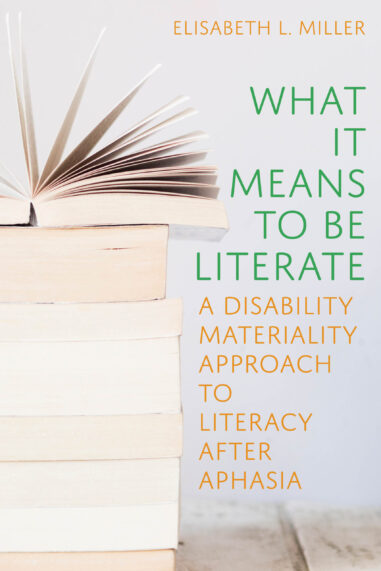
Hardcover $55.00
Request Exam or Desk Copy. Request Review Copy
What It Means to Be Literate
A Disability Materiality Approach to Literacy after Aphasia
In What It Means to Be Literate, Elisabeth L. Miller challenges long-held assumptions about the relationship between embodiment, literacy, and disability as she takes a disability materiality look at literate practices navigated by people experiencing aphasia. In helping us listen to stories about literacy, she also pushes readers to recognize the layers of stigma and ableism that are part of everyday literacy experiences, but which are not always readily recognized in combination. This is a necessary read for anyone interested in literacy studies or disability studies for understanding the complex interrelationships between literacy and disability.

